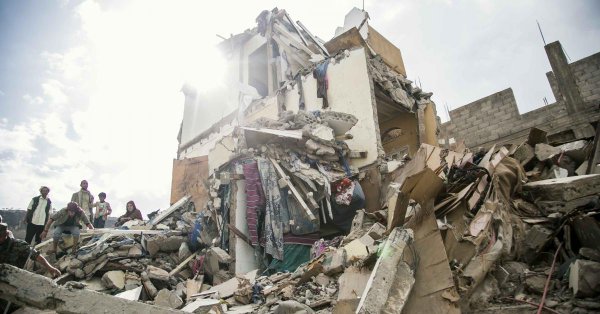Warring parties in Yemen to begin long-delayed consultations to end conflict
According to a tweet early on Wednesday from the Office of the UN Special Envoy for Yemen, Martin Griffiths, the “restart of the intra-Yemeni political process” is scheduled to begin in the Swedish capital, Stockholm within hours.

- Country:
- Yemen Rep.
Hopes are high that the warring parties in Yemen will begin long-delayed consultations on Thursday over ending the conflict that has ravaged the Middle East nation for over three years, leaving millions of civilians dependent on international assistance.
According to a tweet early on Wednesday from the Office of the UN Special Envoy for Yemen, Martin Griffiths, the “restart of the intra-Yemeni political process” is scheduled to begin in the Swedish capital, Stockholm within hours.
He extended his “appreciation to the Government of Sweden for hosting the political consultations, and the Government of Kuwait for facilitating the travel of the Sana’a delegation” to the talks, referring to representatives of the Houthi rebel movement, who were allowed to fly out of the Yemeni capital a few days ago.
The UN attempted to bring the parties together – the Houthis and officially-recognized Government delegation – in Geneva in September for consultations, but conditions to allow the Houthi delegation to reach the Swiss city, did not materialize.
The conflict’s impact
Across Yemen, more than 22 million people – over three-quarters of the population – are dependent on humanitarian assistance or protection, of whom over 8 million are severely food insecure and at risk of starvation.
The conflict, which escalated in early 2015, following a Saudi-led military intervention against a Houthi rebel insurgency, at the request of the Yemeni Government, has also wrecked the country’s medical, water and sanitation systems, resulting in multiple outbreaks of cholera and other deadly diseases.
Thousands of civilians have also perished in airstrikes and fighting.
According to the UN Office for the Coordination of Humanitarian Affairs (OCHA), all parties to the conflict display a disregard for international humanitarian and human rights law and have impeded the principled and timely delivery of humanitarian assistance.
Critical confidence-building
Prior to Mr Griffiths arrival in Sweden, a UN-chartered aircraft successfully evacuated some 50 badly injured Yemenis from the opposition-controlled capital, Sana’a, to medical centres in Oman for treatment, a development seen as a critical confidence-building measure, ahead of the talks. Top officials from many nations also welcomed the medical evacuations.
While there have been many regional and global attempts to silence the guns in Yemen, bringing the parties together and finding agreements has been challenging.
Mr Griffiths was appointed the Special Envoy in February this year, succeeding Ismail Ould Cheikh Ahmed, who had shepherded the UN’s efforts to resolve the conflict in Yemen since April 2015.
In his last briefing to the Security Council Mr. Ould Cheikh Ahmed cautioned that a “destructive pattern of zero-sum politics” has continued to plunge Yemen into ever deeper poverty and destruction, emphasizing that while the UN and the wider international community can try to bring about a favourable environment for a path to peace, Yemeni decision-makers must stop the fighting and bloodshed.
Humanitarian urgency
Humanitarian aid agencies, which have been providing life-saving assistance to millions across Yemen, have underscored the urgency of talks, warning that the situation on the ground has deteriorated “dramatically” in recent months.
Mark Lowcock, the UN Emergency Relief Coordinator, returning from his latest mission to the war-torn country on 1 December described the situation as being on the “brink of a major catastrophe.”
This message was reinforced by the Principles of the Inter-Agency Standing Committee – a group of agencies including many UN entities, international organizations and non-government organizations.
In a joint statement on Monday, they called on all parties to participate in the talks and “engage seriously to agree on actions to ease the situation.”
ALSO READ
'BJP will play major role in Tamil Nadu's development': Tamil Maanila Congress (M) chief GK Vasan
DPIIT Secretary highlights PM GatiShakti principles to be adopted for development of socio-economic infrastructure
SAD alone can bring Punjab on road to development: Sukhbir Badal
Opposition candidate contesting polls with Congress support which ignored development: Himanta
Israel prepared to handle any developments with Iran, defence chief says










